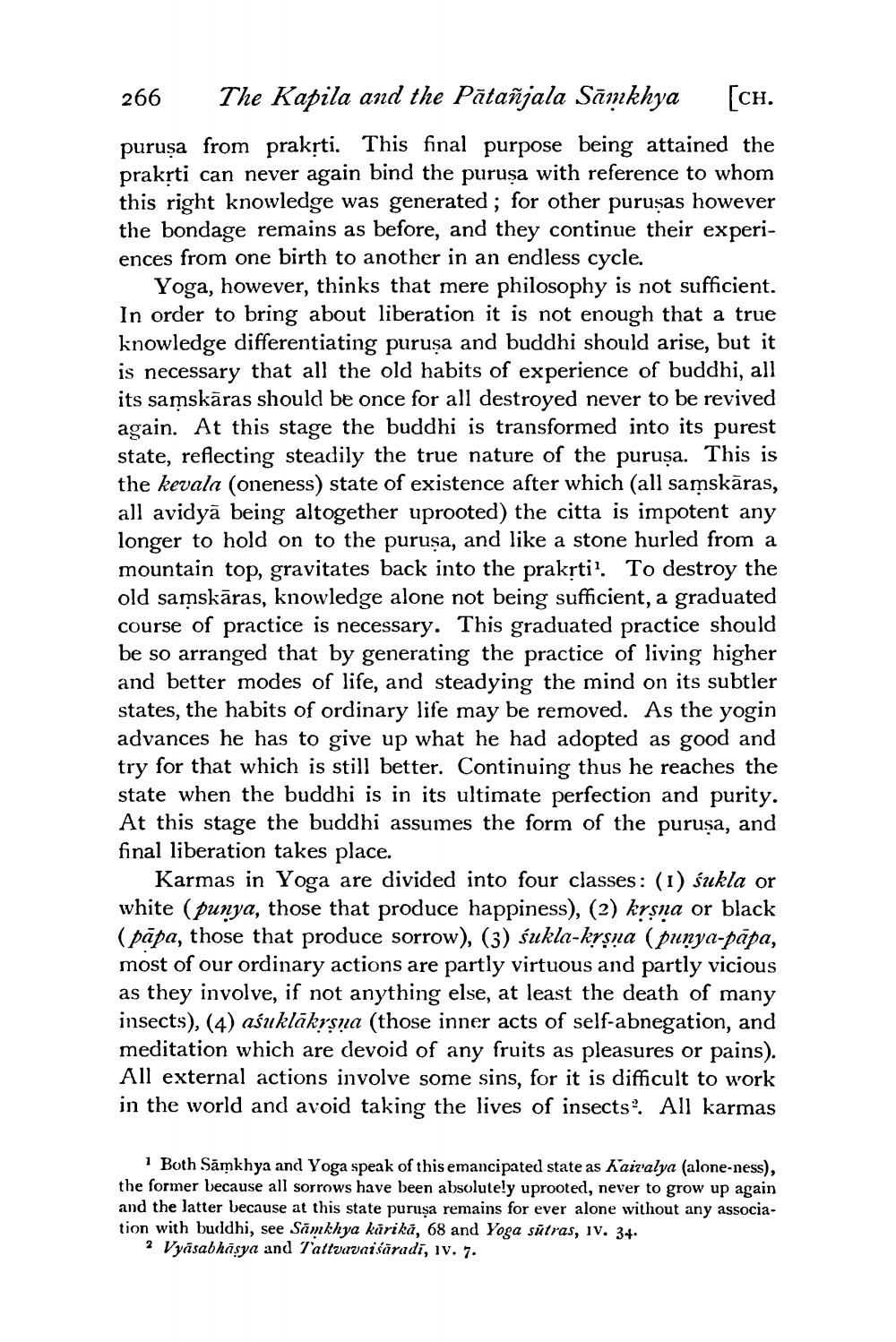________________
266 The Kapila and the Pātañjala Sāmkhya [CH. puruşa from prakrti. This final purpose being attained the prakrti can never again bind the purusa with reference to whom this right knowledge was generated; for other purusas however the bondage remains as before, and they continue their experiences from one birth to another in an endless cycle.
Yoga, however, thinks that mere philosophy is not sufficient. In order to bring about liberation it is not enough that a true knowledge differentiating purusa and buddhi should arise, but it is necessary that all the old habits of experience of buddhi, all its samskāras should be once for all destroyed never to be revived again. At this stage the buddhi is transformed into its purest state, reflecting steadily the true nature of the purusa. This is the kevala (oneness) state of existence after which (all samskāras, all avidyā being altogether uprooted) the citta is impotent any longer to hold on to the purusa, and like a stone hurled from a mountain top, gravitates back into the prakrti?. To destroy the old samskāras, knowledge alone not being sufficient, a graduated course of practice is necessary. This graduated practice should be so arranged that by generating the practice of living higher and better modes of life, and steadying the mind on its subtler states, the habits of ordinary life may be removed. As the yogin advances he has to give up what he had adopted as good and try for that which is still better. Continuing thus he reaches the state when the buddhi is in its ultimate perfection and purity. At this stage the buddhi assumes the form of the puruṣa, and final liberation takes place.
Karmas in Yoga are divided into four classes: (1) śukla or white (punya, those that produce happiness), (2) krsna or black (pāpa, those that produce sorrow), (3) śukla-krsna (punya-pāpa, most of our ordinary actions are partly virtuous and partly vicious as they involve, if not anything else, at least the death of many insects), (4) aśuklākrsna (those inner acts of self-abnegation, and meditation which are devoid of any fruits as pleasures or pains). All external actions involve some sins, for it is difficult to work in the world and avoid taking the lives of insects? All karmas
1 Both Samkhya and Yoga speak of this emancipated state as Kairalya (alone-ness), the former because all sorrows have been absolutely uprooted, never to grow up again and the latter because at this state purusa remains for ever alone without any association with buddhi, see Samkhya karikā, 68 and Yoga sūtras, iv. 34.
2 Vyasabhāsya and Tattvavarsāradi, iv. 7.




